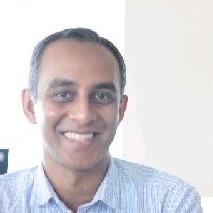1Mby1M Virtual Accelerator AI Investor Forum: Vinit Bhansali, Takshil Venture Partners (Part 1)

Vinit Bhansali, Founder and General Partner at Takshil Venture Partners, discusses how his firm is investing in India.
Sramana Mitra: Today we are going to start the session with a conversation with Vinit Bhansali, founder and GP of Takshil Venture Partners. Welcome Vinit. Thank you for coming to the show today. Looking forward to getting to know you.
Vinit Bhansali: Thanks, Sramana.
Sramana Mitra: So Vinit, let’s start with a bit of introductory material—a bit of background from you, personal background as well as Takshil Venture Partners to get us going.
Vinit Bhansali: Sure. Thank you for having me. I am absolutely amazed at the community you have built at One Million by One Million (1Mby1M).
A little bit of a quick background—like a lot of young founders that you’re here to support, I used to be one of them. I started my first startup in my third year of undergrad. It was a software company. I got a little lucky in 2007 when one of our competitors acquired us. This was in New Jersey.
After that, I started two more startups. The second and third were in India. The third one also got acquired. I never raised money from VCs. It’s kind of funny that I am here as a venture capitalist, but I had to use my own effort and make my companies profitable if I wanted to make any money.
Sramana Mitra: Very good. Our philosophy in 1Mby1M is entrepreneurship equals customers, revenues, and profits. Financing is optional. Exit is optional. You do need an exit if you raise financing because most investors don’t really buy into the dividend concept, and it takes a long time to get to a place where you can offer dividends to your investors. So, exit is kind of the operating principle of venture-funded startups in our industry.
Now, that you have decided to start investing, what is your investment thesis? What is the premise of the Takshil Venture Partners Fund?
Vinit Bhansali: We believe there are incredible entrepreneurial opportunities all across India. There’s a massive opportunity to start discovering young founders who are able to build out products and companies on very unique, vertical use cases.
Within that, there are certain sectors that we believe are underserved in India and that will see massive growth. That is what Takshil stands for.
We are primarily a tech fund, which means we invest in companies that have technology as their core offering—not just tech-enabled. We are very clear about certain sectors. We invest in climate tech and sustainability startups—companies working in the circular economy, carbon credits, recycling, upcycling, battery technology, etc.
Secondly, we invest in software and AI companies. It’s unfortunate that everything software today comes under the umbrella term of AI. When we started the fund, we called ourselves a SaaS fund, but today it’s also an AI fund.
Sramana Mitra: And how big is the fund, Vinit?
Vinit Bhansali: In US dollars, it’s a $30 million fund. In Indian rupees, it’s about 250 crores, total fund corpus. We write early checks of anywhere from half a million to a million dollars—about 5 to 10 crores.
Sramana Mitra: If you’re writing half a million to a million dollar checks, what do you want to see in the company before you’re willing to write those checks?
Vinit Bhansali: Since I’d been a founder myself, I think we have a lot more empathy for the founder’s journey and where they’re building from.
Given how easy access to building technology has become—with all of the coding tools available—our least expectation is that the product should be ready. The first version of the product, the MVP, should be ready.
We do not demand that the company should already be making revenues, but we do want to see and ask the founders how they plan to make money. We want that clarity of thought. They may not be making money, but they need to be able to explain how they expect to make money.
Sramana Mitra: And how much customer engagement do you want to see to support those claims?
Vinit Bhansali: Customer engagement would have meant revenue. We are okay with pre-revenue, but we expect that if there is a certain customer persona, the founders should have spoken to enough customers.
“Enough” is a wide number—if you’re doing a B2B enterprise product, even talking to 10 companies is a lot. But if you’re making a product for small and medium businesses or consumers, then even talking to 50 is sufficient.
Sramana Mitra: So, customer conversations and insights are fine. You don’t necessarily need paying customers to write your checks?
Vinit Bhansali: That is correct.
This segment is part 1 in the series : 1Mby1M Virtual Accelerator AI Investor Forum: Vinit Bhansali, Takshil Venture Partners
1 2 3 4 5
Featured Videos
Can 1M/1M Help Me Raise Money?
How Does 1M/1M Democratize Entrepreneurship Education?
How Does 1M/1M Democratize Management Consulting?
When Is The Right Time To Join 1M/1M?
Can 1M/1M Help Me With Business Development?
Can 1M/1M Help Me With Market Sizing?
Can 1M/1M Help Me Validate My Product?
Will I Have Private 1-on-1 Sessions In 1M/1M?
How Does 1M/1M Help Entrepreneurs Connect With Silicon Valley?
Mentoring or Consulting?
Why Does 1M/1M Charge $1000 a Year?
Why Does 1M/1M Partner With Local Organizations?
Why Don\’t Mentoring Networks Work?
Why Is It Important To Study With 1M/1M Now?
Dan Stewart Story
Vikrant Mathur Story
